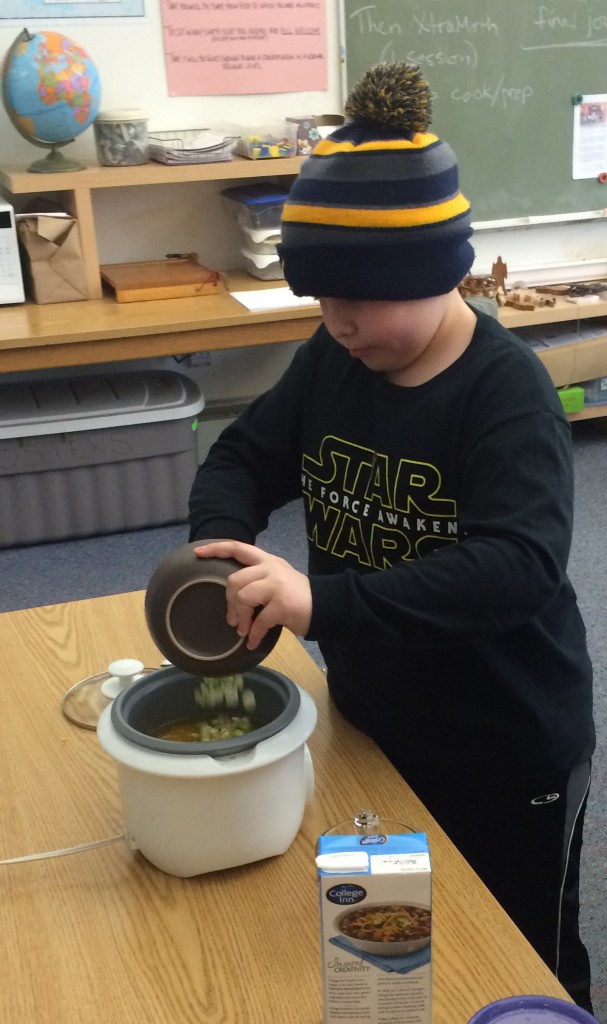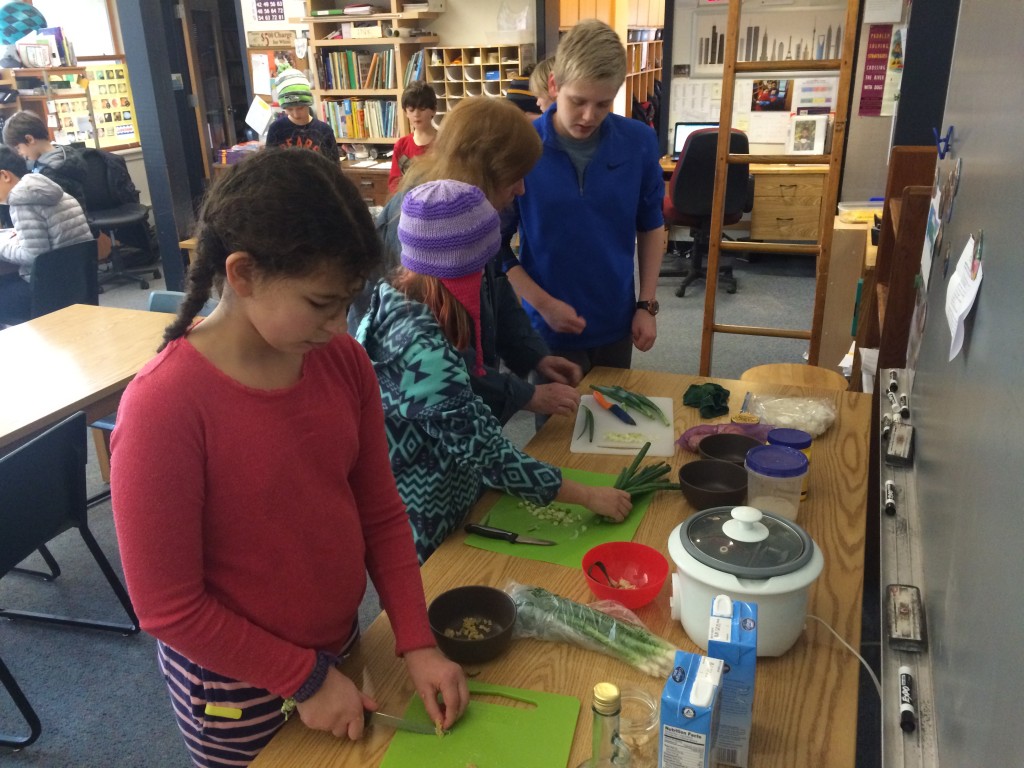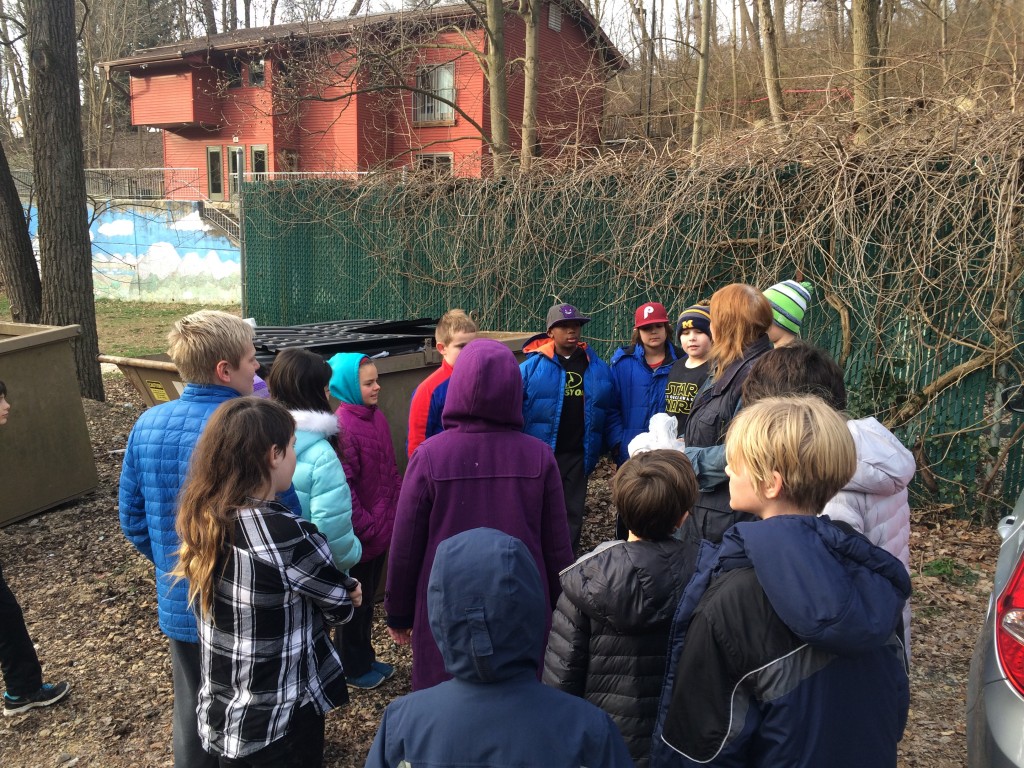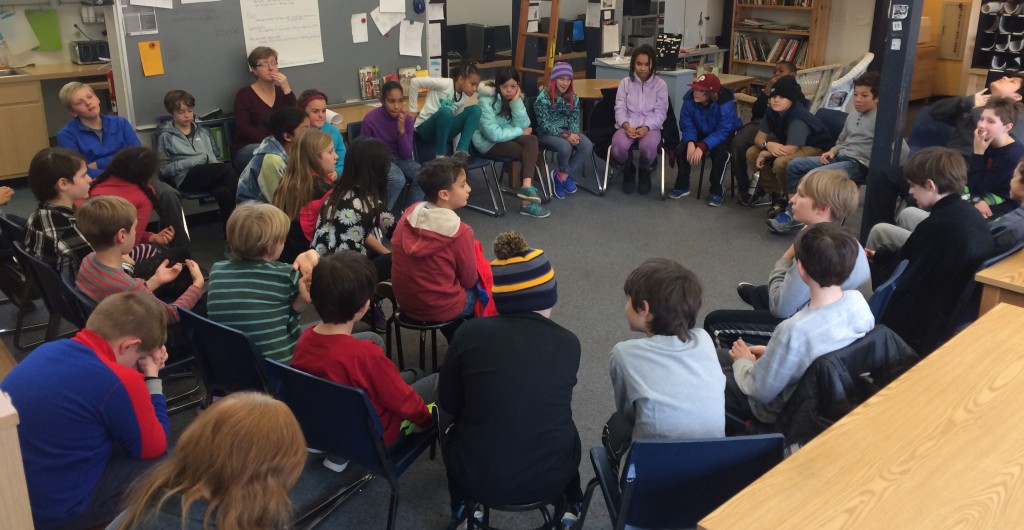WEEK 1 (JAN. 5 – 8)
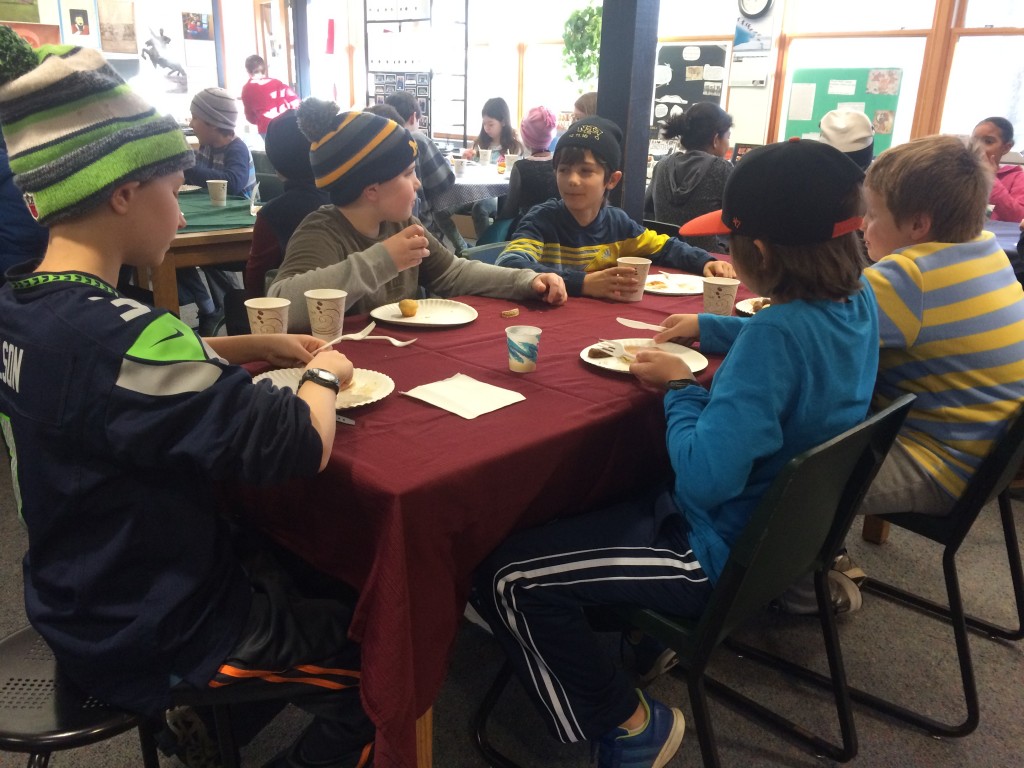
We celebrated the resumption of school on January 5 with our traditional breakfast for everyone the building. It’s the teachers’ gift to our students. Pancakes, sausages, juice, fruit, muffins, and more were happily devoured as students chatted about things they had done during the break.
Then we plunged back into our regular work, finishing up some old things and starting some new ones.
We brought our Mongol study to an edible conclusion on Thursday. (Yes, we cooked twice in one week.) We did a Mongolian lamb stir-fry and a vegetarian rice dish. In early times, Mongols apparently ate very plain food but a very high protein diet: meat and dairy products dominated with very little in the way of grains or vegetables. Meat would have come from sheep, goats, or horses. They made yogurt from milk from any of those animals and also made a fermented drink from mare’s milk. After they had contact with the cuisine of other cultures as they expanded their empire, their diet changed mainly in the way things were prepared but also with added ingredients. Our two “Mongolian” dishes were heavily influenced by Chinese cooking.
Students helped to cut and assemble the ingredients. Ginger, garlic, scallions, and vegetable broth went into the rice. The thin strips of lamb were marinated in soy sauce, brown sugar, garlic, sherry, and ginger for several hours. Then it was mixed with some plain cooked rice, stir fried with scallions in a large wok, and simmered for a short time in beef broth. We offered it at the start of lunchtime, and there was nothing left after about 15 minutes.
Our next topic will be the foundation and core beliefs of Islam, and we will be learning about other religions as well in order to find differences and commonalities.
We had a sad experience with our two chickens this week. One became sick and died the day before we returned to school. The other was clearly not well, also, and she died several days later. We had a ceremonial processional to the dumpster with the body wrapped in a plastic bag (as the ground was too hard to do a deep-enough burial that would not be dug up by a raccoon or other animal) and said a few words about what good layers both birds had been, giving us an egg each almost every day. We’ll look into getting some chicks after Spring Break.
Our bingo games (played for 10 minutes or so on most afternoons) have been focused on mental computation with whole numbers. But, as part of our short probability unit in math, we are now matching fractions with equivalent percentages. We have done work on this in our math classes. For some students, it’s review, while others are still a bit bewildered but catching on.
The probability unit is the first of the two topics we are doing with everyone in our home classroom. A few students who were ready to move ahead independently have done some work with it online. Most of us are using materials from Connected Mathematics and from a wonderful book published by Key Curriculum Press many years ago. We all solved some spinner puzzles through Geometer’s Sketchpad. Everyone is able to do some review and also gain new learning about fractions, percentages, ratios, proportions, and estimation through this unit, whatever level they are working in. Mark has taught some excellent games that we analyzed in terms of probability, and students have realized that their play has improved with that new knowledge. (“SKUNK” is a wonderful family game. Ask your child about it.)
We had a Good-of-the-Building meeting this week to explore some issues that were brought up by various students recently. Topics included rough play and endless arguing (football) at choice time, unkind and offensive language in many settings, disruptive and distracting behavior in class (mostly side conversations when it was time to be listening to peers or teachers), and bus issues. We didn’t get through the full list in our first meeting, but it seemed productive, and we’ll be meeting again in the near future.
WEEK 2 (JAN. 11 – 15)
We began organizing our building-blended book groups by offering students 12 different titles. Humor, historical fiction, realistic fiction, fantasy, and non-fiction were all represented. The books were displayed for browsing, and teachers gave a brief promotional talk for each one. Students were asked to give us 4 ranked choices. From those lists, we set up 6 groups that are being led by 6 teachers: the four in our home classrooms plus Jen and Amy. The books that were most popular became our final selection: The Wee Free Men by Terry Pratchett, The Ghost Map by Steven Johnson, Hatchet by Gary Paulsen, Mockingbird by Kathryn Erskine, The Gods and Their Machines by Oisin McGann, and A Monster Calls by Patrick Ness. In our first meeting (Thursday), we set up reading schedules and plans for our future discussion group sessions, which will take place on Thursday mornings through February.
We are working on rounds in our Wednesday sing lately. A student suggested it just before winter break. The combined group is large enough that we can break into 3 or 4 parts while still having enough voices for each. It’s a lot of fun. Former music teacher John Krumm observed that rounds (or “canons” as our more educated music teacher, Diego, calls them) enable everyone — even music novices — to have a sophisticated ensemble experience.
Our current chapter book is one of Kate Thompson’s novels: The New Policeman. Set in Ireland in recent times, it’s a fantasy about an accidental connection between this world and the mythical land of Tir na n’Og. Time is leaking away from our own universe (which is why we all seem to have so little of it lately) and it is affecting life in the Other World. They also get all the socks that seem to disappear in your wash, by the way. Two real-life mysteries solved in one funny, inventive novel . . .
We have begun our study of Islam. We’ve watched an animated telling of the life of Muhammad and also done some preliminary vocabulary work. Although I’ve been teaching this topic off and on for about 40 years, there are times when it seems especially relevant. The oil crisis in the early 70’s which resulted in long lines at the gas stations was one such time. This, clearly, is even more of a connected time. One of our learning goals is that students come to understand that terrorism is not part of the religion and that its foundation beliefs have a lot in common with Judaism and Christianity.
Going more widely, we are spontaneously and informally discussing terrorism as a world-wide problem arising from extremist groups (and alienated individuals) — not just ISIL but also some Basque separatists, some Israelis and Palestinians, some Irish Catholics and Protestants, and many others. We hope you’ll have discussions around this topic at home. We are encouraging openness to a range of views on this, of course, and saying — strongly — that this is a very complex problem that has been in the world for a very long time. We also are assuring our children that they are almost certainly safe in their daily lives, that these violent actions are not ones they should worry about.
We have talked about how exclusion can alienate people and lead them to anti-social actions and that that is why it is so important to be inclusive, respectful, and knowledgeable about everyone in our diverse world. Mark and I often bring a candid and personal dialogue and perspective into this conversation — what might I worry about and what might he worry about as we walk down a street? Does it matter which street it is? Does it matter if we were walking together?
On a more mundane note, we spent some time cutting out snowflakes and learning a bit about how and under what conditions they form. We hope that, by putting a flurry of them on our windows, we might get enough reak snow to go tubing at least once. Even Susannah made one when she visited with us on the afternoon that we made them. (If we have a major blizzard, we’ll probably take them down.)
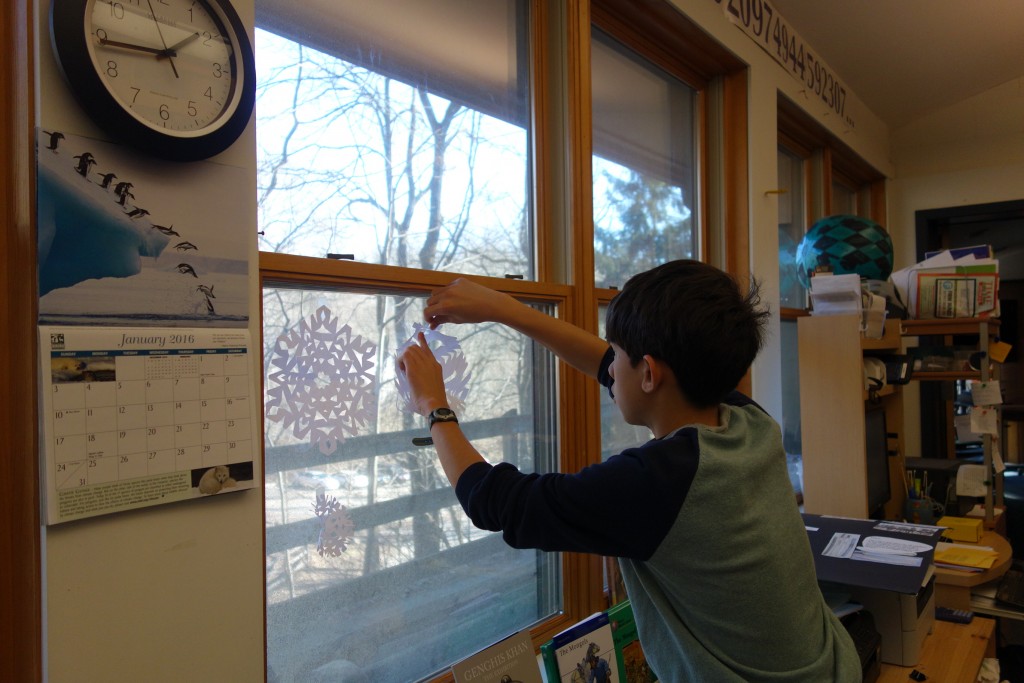
We are looking forward to our new book group conversations, our new math topic (spatial reasoning in three dimensions), and our further investigations into Islam. Check in next week.

